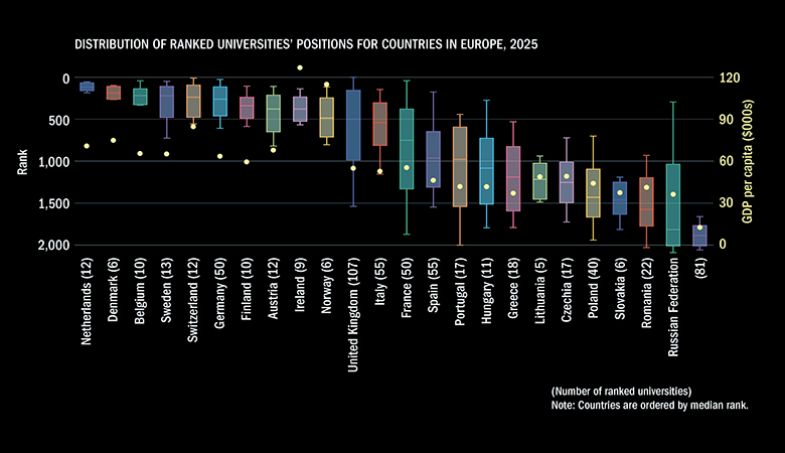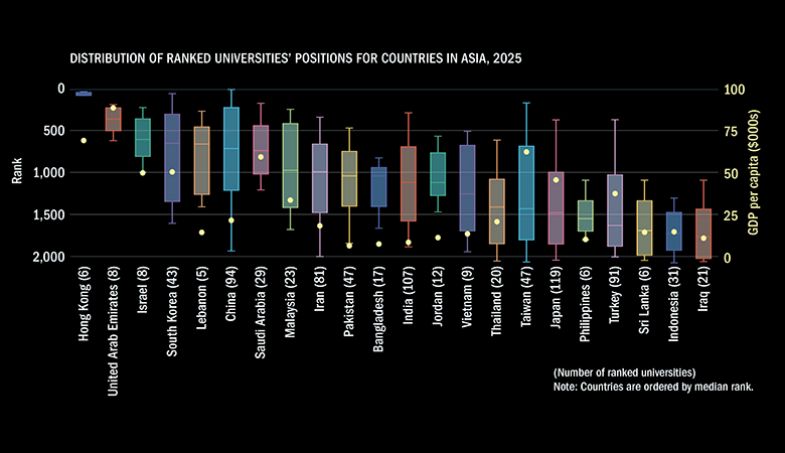Browse the full results of the World University Rankings 2025
University systems are often analysed on average positions and scores or by looking at the top-performing institutions, but assessing the distribution of ranking positions can reveal some interesting trends.
In Europe, the country with the narrowest distribution of universities in the Times Higher Education World University Rankings is the Netherlands. Its highest-ranked institution is joint 56th, while its lowest is in the 251-300 band (based on 12 universities ranked).
An interesting comparison is Italy and France, which have similar gross domestic product per capita. The former’s distribution is quite compressed, with a median ranking in the 501-600 band, the highest rank at joint 146th, and the lowest in the 1,201-1,500 band. Conversely, France’s distribution is more elongated, with a median in the 601-800 band, the highest rank at 42nd, and the lowest in the 1,501+ band.
A wide spread indicates a broader range of university quality. It could reflect policies that favour some institutions over others, as well as a country's size and wealth and differences in the development of university systems.
In Asia, Bangladesh has a particularly small distribution; its top-ranked university is in the 801-1,000 band and its lowest-ranked is in the 1,501+ band, based on 17 universities ranked. Pakistan, which has a similar GDP per capita, has a much broader spread: its highest-ranked institution is in the 401-500 band while its lowest is in the 1,501+ band.
China has a large range, with its top university at rank 12 and its lowest in the 1,501+ band. Its median is the 601-800 band, with 94 universities ranked. South Korea has a similar distribution to China.
Register to continue
Why register?
- Registration is free and only takes a moment
- Once registered, you can read 3 articles a month
- Sign up for our newsletter
Subscribe
Or subscribe for unlimited access to:
- Unlimited access to news, views, insights & reviews
- Digital editions
- Digital access to THE’s university and college rankings analysis
Already registered or a current subscriber? Login










